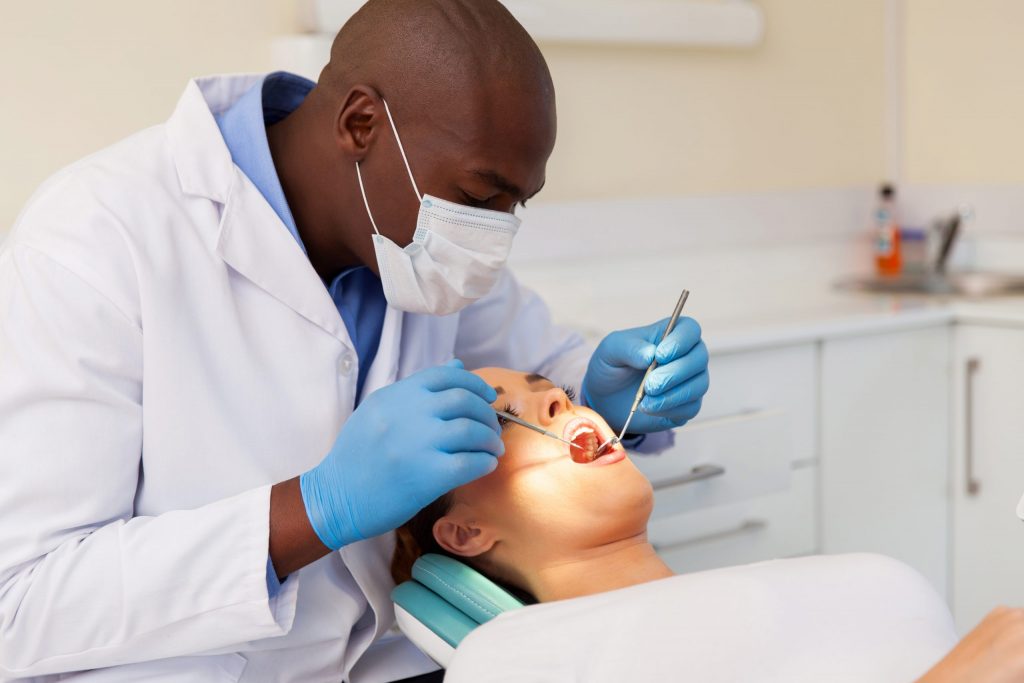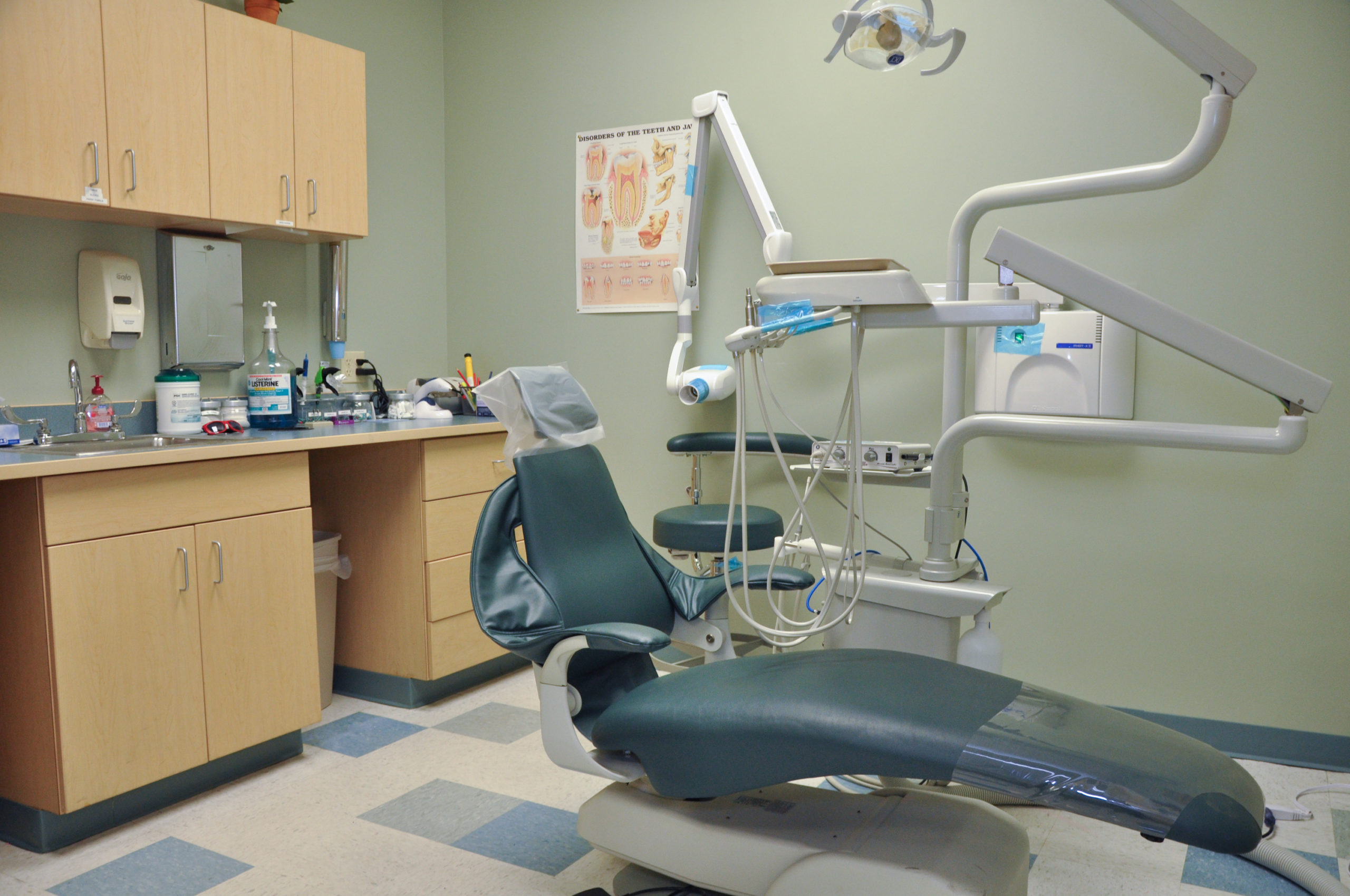What to Anticipate from Your Initial Visit to a Dentist in Eugene Oregon
What to Anticipate from Your Initial Visit to a Dentist in Eugene Oregon
Blog Article
An Overview to Typical Dental Problems That Need a Dentist's Treatment
Understanding the variety of dental conditions that necessitate expert treatment is extremely important for preserving ideal dental wellness. Toothaches, for example, can be symptomatic of severe concerns such as cavities, broken teeth, or abscesses, each calling for particular interventions like dental fillings or origin canals. Gum condition, from the early stages of gingivitis to much more serious periodontitis, highlights the significance of routine oral examinations and cleanings. In addition, impacted wisdom teeth and jaw disorders can introduce considerable discomfort and problems. Making sure prompt visits to the dental expert can alleviate these issues efficiently, however exactly what are the indications and therapies entailed?
Toothaches
Toothaches are a common dental problem that can range from mild discomfort to serious discomfort, usually suggesting a hidden problem that calls for expert attention. This pain can come from a variety of resources, including tooth decays, cracked or fractured teeth, and oral abscesses. Each of these problems postures considerable risks if left untreated, potentially leading to extra serious problems.
Dental tooth cavities, also called cavities, are caused by the accumulation of plaque that wears down tooth enamel, causing holes or pits in the impacted teeth (eugene dentist). Cracked or fractured teeth, on the various other hand, might result from injury, grinding, or attacking into hard things. These architectural damages can subject the delicate internal layers of the tooth, creating acute pain and increasing the danger of infection. Abscesses hurt infections at the origin of a tooth or in between a tooth and the gum tissue, usually resulting from severe decay or without treatment tooth cavities.
Efficient therapy of toothaches entails dealing with the origin. This may consist of fillings for dental caries, crowns for cracked teeth, or root canals and prescription antibiotics for abscesses. Early treatment by an oral professional can stop further deterioration and minimize discomfort, guaranteeing ideal oral health.
Gum Tissue Condition
Periodontal disease, a common yet typically neglected dental problem, manifests via swelling and infection of the periodontals and sustaining cells. This problem mostly happens in two stages: gingivitis and periodontitis. Gingivitis, the milder kind, provides with signs such as red, swollen gums that may bleed conveniently throughout brushing or flossing. If left unattended, gingivitis can progress to periodontitis, an extra extreme type defined by the damage of the sustaining bone and connective tissue, eventually causing missing teeth.
The primary source of periodontal condition is microbial plaque, a sticky, colorless film that frequently develops on teeth. Poor dental health, cigarette smoking, genetic tendency, and certain medical conditions, such as diabetic issues, can intensify the risk of developing periodontal illness. Routine oral examinations are important for early detection and management of this condition.
Therapy for gum illness ranges from expert dental cleaning and scaling to advanced procedures like origin planing and periodontal surgical treatment, relying on the severity. Preserving great oral hygiene techniques, including brushing twice daily, flossing, and making use of an antiseptic mouth wash, can considerably minimize the danger of periodontal illness and promote healthier gums.
Cavities
Dental caries, also called cavities, are a typical dental problem characterized by the devastation of tooth enamel because of acid-producing microorganisms in the mouth. These bacteria flourish on sugars and starches from food and beverages, producing acids that progressively wear down the enamel, resulting in tooth cavity development.
Early-stage tooth cavities might not reveal signs, but as they proceed, they can cause tooth pain, level of sensitivity to cool or hot, visible openings or pits in the teeth, and staining. If left without treatment, like it cavities can permeate deeper layers of the tooth, potentially leading to serious discomfort, infection, and also tooth loss.
Avoiding dental caries entails a mix of great dental hygiene practices and dietary habits. Normal cleaning with fluoride toothpaste, flossing, and routine oral exams are important. Dentists may likewise recommend added safety nets, such as fluoride therapies and oral sealers, to safeguard teeth from degeneration.
Minor tooth cavities can be resolved with oral fillings, which recover the tooth's structure. More advanced situations might require crowns or also root canal treatment if the decay has actually reached the tooth's pulp.

Impacted Knowledge Teeth
Affected knowledge teeth are a prevalent oral concern that takes place when the third molars, typically referred to as knowledge teeth, fail to fully arise or straighten properly within the mouth. This condition commonly arises from not enough room in the jaw or an unusual growth angle of the teeth. Affected wisdom teeth can bring about a variety of issues, including infection, damage, and discomfort to surrounding teeth.
When knowledge teeth become impacted, they are often partially emerged or stay totally underneath the periodontal line. This partial eruption can produce a path for germs to get in the gum tissues, leading to infections that show up as swelling, discomfort, and also fever. Furthermore, affected wisdom teeth can exert pressure on surrounding teeth, possibly triggering crowding or moving.
A detailed oral exam, normally involving X-rays, is vital for diagnosing affected knowledge teeth. Therapy typically involves surgical extraction, done by an oral doctor. The procedure intends to minimize pain useful reference and stop more complications, such as cysts or damages to bordering bone frameworks. Post-operative treatment is essential to ensure correct healing and reduce the threat of infection. Normal dental examinations are advisable to keep an eye on the condition and keep dental health.
Jaw Conditions
Jaw disorders, collectively called temporomandibular joint (TMJ) problems, encompass a series of problems that affect the jaw joint and surrounding muscle mass. These disorders can materialize through signs and symptoms such as discomfort or tenderness in the jaw, trouble chewing, a popping or clicking audio when opening up or closing the mouth, and even persistent headaches. TMJ problems can develop from various variables, consisting of joint inflammation, jaw injury, or regular behaviors like teeth grinding or jaw clenching.
Diagnosis of TMJ conditions commonly involves a comprehensive assessment by a dental expert, consisting of a physical exam of the jaw, oral X-rays, and sometimes progressed imaging techniques like MRI or CT checks to examine the joint's problem. Non-invasive techniques such as physical therapy, oral splints, and medications aimed at minimizing inflammation and pain are commonly first-line treatments.
Very early intervention by an oral expert is important to avoid the development of TMJ problems and to preserve general dental health and wellness. Patients experiencing relentless jaw pain or dysfunction need to look for prompt assessment and therapy.
Final Thought
Toothaches typically suggest underlying concerns such as dental caries, fractured teeth, or abscesses, calling for punctual treatment. Affected wisdom teeth and jaw conditions likewise require expert focus to minimize pain and protect against further issues.
Dental cavities, additionally understood as cavities, are caused by the buildup of plaque that erodes tooth enamel, leading to holes or pits in the influenced teeth. Abscesses are agonizing infections at the root of a tooth or between a tooth and the periodontal, usually resulting from severe degeneration or untreated cavities.

Additionally, influenced wisdom teeth useful content can put in stress on surrounding teeth, potentially creating crowding or changing.
Report this page